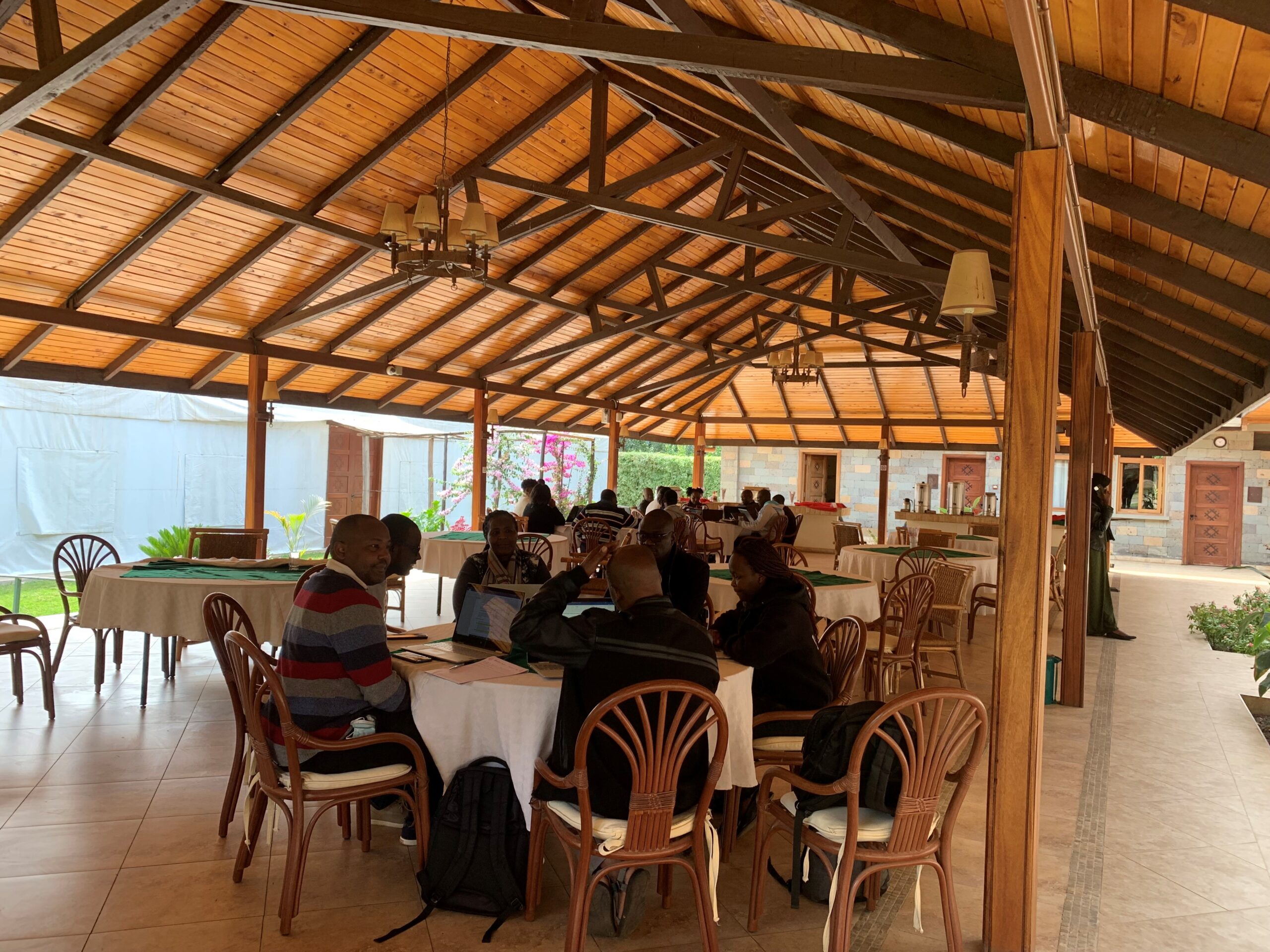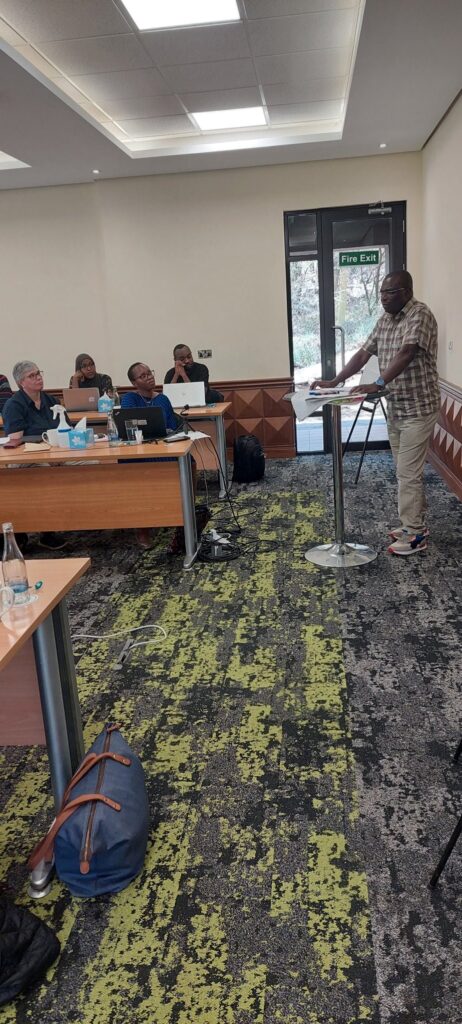In our latest blog, Penny Babb, OSR’s Head of Policy and Standards, speaks about her experience with the Kenya National Bureau of Statistics in developing the Kenya Statistics Code of Practice
I am a self-confessed code-geek. I love talking about the Code of Practice for Statistics! I may be a tad boring at parties, but I have a passion for the Code that is hard to miss (and I hope is infectious).
What better then, than to get together with a group of people, away from the distractions of work (or mostly), to talk about codes for a week! There truly was no escape for my audience as we met on the shores of Lake Naivasha in Kenya.
It was such a privilege to work with the Director General and statisticians of the Kenya National Bureau of Statistics (KNBS), to guide them through the preparations of their own code of practice. This collaboration was part of the strategic partnership between the UK Statistics Authority (UKSA) and KNBS. It wasn’t about the UK Code, but an opportunity to share our experiences and to support KNBS as they wrote their first code – finding the message that they wished to share with their organisations and analysts across the statistical system to inspire good practice. KNBS is committed to ensuring official statistics remain a valuable resource for all stakeholders in the statistical system in Kenya and to demonstrating international best practice. It sees the code as being central to achieving these goals.
One of the lessons I took from being involved in developing the second edition of the UK Code was the power of explaining it simply, in just three words. And as we have seen in our own recent review of the Code, our three words – trustworthiness, quality and value – are extremely effective in helping people producing and using official statistics to understand what matters. My goal was to help my Kenyan colleagues find their own three (or more!) words.
The dedication and skill of the team of statisticians and leaders at KNBS was evident and central to completing their task of writing their code. The Kenyan code had to be one that was meaningful and inspiring in their context – not just to staff in KNBS, the national statistical institute for Kenya, but for all other organisations in their statistical system.
In two week-long workshops, Caroline Wangeci (the then ONS strategic adviser to KNBS) and I led sessions to develop the Kenyan code of practice. Our codes are both grounded on the UN Fundamental Principles for Official Statistics, but each speaks to specific needs within our countries.
The commitment and dedication of the Kenyan team was inspiring to witness and humbling to assist. Writing a code of practice to set standards for statistical production and dissemination is challenging. But doing so in concentrated bursts of effort, away from day-to-day responsibilities, allowed the team focused time to think through the key values and messages needed to inspire those involved in producing official statistics. After having spent a day diving deep into code matters, many of the participants then spent further hours catching up on their work, ensuring the smooth running of their statistical teams.
KNBS has published the Kenya Statistics Code of Practice (KeSCoP). It is a remarkable achievement in its clarity and mission. As the Code highlights,
“KeSCoP is anchored on three pillars, namely, Quality, Trustworthiness and Progressiveness. Each pillar contains values and commitments that producers of statistics should commit to when producing and disseminating statistics.” [page 1, KeSCoP]
KeSCoP is drawn from the principles and requirements of the Kenya Statistical Quality Assurance Framework (KeSQAF). The Code helps the drive for continuous improvements in statistical practice.
“Compliance with KeSCoP gives producers of official statistics and the users confidence that published statistics are of high quality, have public trust and are produced by institutions and people that are progressive.” [page 2, KeSCoP]
It echoes our UK Code but in a truly Kenyan way – they have defined their concepts and practices in the ways that speak to their application of the UN Fundamental Principles for Official Statistics.
Quality has values for:
relevance; timeliness and punctuality; accuracy; coverage/comprehensiveness; methodological soundness; professional skills and competencies; and data sources
Trustworthiness has values for:
impartiality and equal access; confidentiality; accountability and transparency; and integrity and credibility
Progressiveness has values for:
innovation; continuous improvement; user focus; and adequate funding
I love the clarity of each value and commitment, providing a clear steer for any producer on what it looks like to deliver official statistics to the required standard, with associated indicators or measures of success.
We have much that we can learn from KeSCoP as we refresh the UK Code and seek to ensure its clear communication and accessibility.
To find out more about UKSA’s international development work, see ONS’s published strategic plan for 2022–2025.


